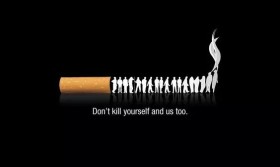Tobacco Reduces Erectile Function Response to Hormone Therapy
Introduction
Erectile dysfunction (ED) is a common condition affecting millions of men worldwide, often linked to hormonal imbalances, vascular diseases, and lifestyle factors such as smoking. Hormone therapy (HT), including testosterone replacement therapy (TRT), is frequently prescribed to improve erectile function in men with low testosterone levels. However, emerging research suggests that tobacco use significantly diminishes the effectiveness of hormone therapy in restoring erectile function. This article explores the mechanisms by which tobacco impairs the response to hormone therapy, the clinical implications, and potential strategies to mitigate these effects.
The Link Between Hormone Therapy and Erectile Function
Testosterone plays a crucial role in male sexual health by regulating libido, erectile function, and overall vascular health. Hormone therapy aims to restore optimal testosterone levels, thereby improving sexual performance and well-being. Studies have shown that TRT can enhance endothelial function, increase nitric oxide (NO) production, and improve blood flow to the penile tissues—key factors in achieving and maintaining erections.

However, not all men respond equally to hormone therapy. Lifestyle factors, particularly tobacco use, have been identified as significant barriers to treatment efficacy.
How Tobacco Impairs Erectile Function
Tobacco smoke contains thousands of harmful chemicals, including nicotine, carbon monoxide, and free radicals, which contribute to vascular damage and endothelial dysfunction. These effects are particularly detrimental to erectile function due to the following mechanisms:
1. Endothelial Dysfunction
The endothelium, the inner lining of blood vessels, is essential for vasodilation and blood flow regulation. Nicotine and other toxins in tobacco smoke damage endothelial cells, reducing the production of nitric oxide (NO), a critical molecule for penile erection. Since hormone therapy relies on NO-mediated pathways to improve erectile function, tobacco-induced endothelial damage undermines its effectiveness.
2. Oxidative Stress and Inflammation
Tobacco use increases oxidative stress by generating free radicals that damage cellular structures, including those in penile tissues. Chronic inflammation from smoking further impairs vascular health, reducing the responsiveness of erectile tissues to hormonal signals.
3. Hormonal Disruption
Smoking has been shown to lower testosterone levels by increasing cortisol (a stress hormone) and disrupting the hypothalamic-pituitary-gonadal (HPG) axis. This hormonal imbalance counteracts the benefits of hormone therapy, making it less effective in restoring erectile function.
4. Vascular Constriction
Nicotine is a potent vasoconstrictor, narrowing blood vessels and reducing blood flow to the penis. Even with hormone therapy, persistent smoking limits the ability of blood vessels to expand, preventing adequate erection formation.
Clinical Evidence Supporting the Negative Impact of Tobacco on HT Response
Several studies have demonstrated that smokers exhibit a poorer response to hormone therapy compared to non-smokers:
- A 2018 study published in The Journal of Sexual Medicine found that men who smoked had significantly lower improvements in erectile function after TRT than non-smokers.
- Research in Andrology (2020) reported that smokers undergoing hormone therapy showed reduced endothelial function and lower testosterone bioavailability, leading to diminished therapeutic outcomes.
- A meta-analysis in Urology (2021) concluded that tobacco use was an independent predictor of poor response to ED treatments, including hormone therapy.
These findings highlight the need for smoking cessation as part of erectile dysfunction management.
Strategies to Improve Hormone Therapy Efficacy in Smokers
Given the detrimental effects of tobacco on erectile function and hormone therapy response, clinicians should adopt a multi-faceted approach:
1. Smoking Cessation Programs
Encouraging patients to quit smoking is the most effective way to enhance hormone therapy outcomes. Nicotine replacement therapy (NRT), behavioral counseling, and medications like varenicline can support cessation efforts.
2. Antioxidant Supplementation
Since oxidative stress plays a key role in tobacco-related ED, antioxidants such as vitamin C, vitamin E, and coenzyme Q10 may help mitigate damage and improve vascular function.
3. Combination Therapy
For smokers with persistent ED despite hormone therapy, combining TRT with PDE5 inhibitors (e.g., sildenafil, tadalafil) may provide better results by enhancing NO-mediated vasodilation.
4. Lifestyle Modifications
Regular exercise, a heart-healthy diet, and stress management can improve vascular health and amplify the benefits of hormone therapy.
Conclusion
Tobacco use significantly reduces the efficacy of hormone therapy in improving erectile function by inducing endothelial damage, oxidative stress, and hormonal imbalances. Clinicians must emphasize smoking cessation as a critical component of ED treatment to maximize therapeutic outcomes. Future research should explore targeted interventions to counteract tobacco’s negative effects and optimize hormone therapy responses in smokers.
By addressing tobacco use alongside hormone therapy, men with ED can achieve better sexual health and overall well-being.
Tags: #ErectileDysfunction #HormoneTherapy #Testosterone #Smoking #Tobacco #MenHealth #EndothelialFunction #OxidativeStress #Urology #SexualHealth









